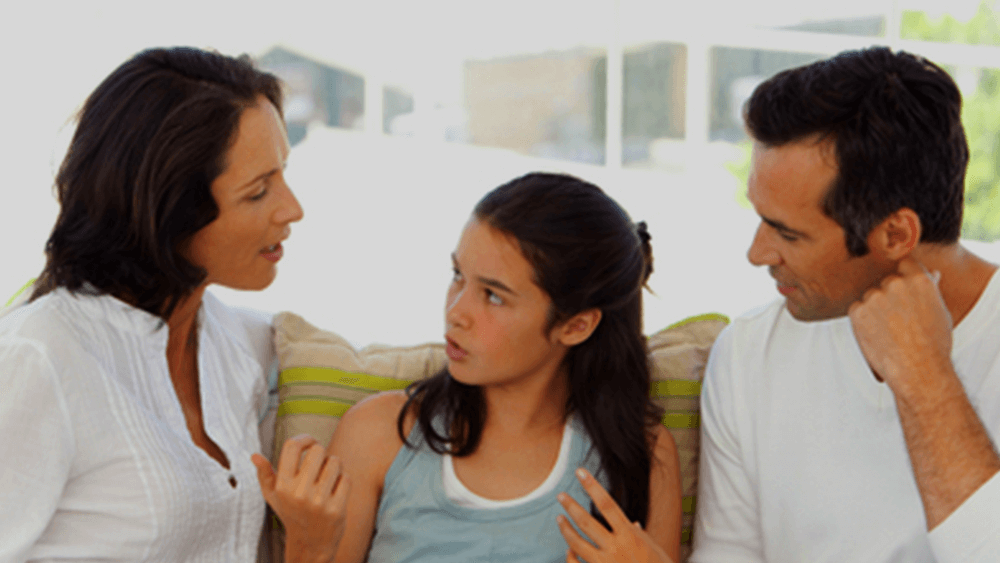How to Talk to Kids About Death

It is not uncommon for a three year old to ask questions about death. It is not uncommon for a child to be openly unconcerned about the death of a grandparent yet devastated over the death of a pet. Death confuses children.
How to explain death to children
Explain death in terms of familiar functions.
- When people die they do not breathe, eat, talk any more.
- When a dog dies they do not bark or run any more.
- When flowers die they do not grow or bloom any more.
There are moments when adults have trouble ‘understanding’ what children are asking us. A question that may seem childish may be a child’s request for reassurance.
For instance, a question such as, “When will you die?” shows that death means separation to the child. Separation from parents and the loss of care are frightening to the child. Possibly the best way to answer this question is by asking a clarifying question in return: “Are you worried that I won’t be here to take care of you?”
If that is the case, the reassuring and appropriate answer would be something like, “I don’t expect to die for a long time. I expect to be here to take care of you as long as you need me, but if I did die, there are lots of people to take care of you. There’s Mumma, there is your elder sister Jyoti, your elder brother Neeraj and my elder brother Ashok too.”
It is important to check which words you use when discussing death with your kids. Some children confuse death with sleep, particularly if they hear adults refer to death with one of the many euphemisms for sleep – ‘died in their sleep’, ‘eternal rest’, ‘rest in peace.’
Resulting from this confusion, a child may be afraid of going to bed, incase they don’t wake up either!
Similarly, if children are told that someone who died “went away”, brief separations may begin to worry them. Grandma ‘went away’ and hasn’t come back yet. Maybe Mummy won’t come back from the shopping or from work.
Therefore, it is important to avoid such words as sleep, rest, or went away when talking to a child about death.
To avoid confusion with preschoolers and very young children, it helps to explain that only very serious illness may cause death. When they hear that sickness was the cause of death, we don’t want them to assume that minor ailments are a cause for major concern.
It is important to explain that most people live a long time, but some don’t. However we do expect that we will live a very long time (always reassure them)!
Why do we avoid discussing about death?
Parents avoid discussing death with kids for two reasons.
- They don’t know how to break the subject with their kids.
- They don’t know how to answer their kids questions.
Death is however an inevitable part of life. It is our responsibility to discuss it with our kids. We may be surprised at how aware children already are about death.
- They see dead insects and dead animals on the road.
- They see death in movies and in TV serials.
- As in our case, a family pet (we had two hamsters we called Chunnu and Munnu) may have died.
- They read about death in fairy tales, watch it in cartoons and even role-play death in school plays.
Without realising it, they already have exposure to the concept of death.
Why is Discussing Death Difficult
1. We avoid talking about things that upset us.
We escape the discussion hoping that by saying nothing, it will go away. The reality is different.
Children have sensitive barometers to feel emotion. They are tremendous observers too. They know something is wrong by simply watching us. Our body language, the emotions we are feeling, what we say and what we don’t say are all communicating a message to our kids.
When we choose not to discuss an issue with our kids they too hesitate to ask questions. They automatically think “If Mummy and Papa are so upset that they can’t talk about it, I had better not talk about it either……it must be bad!”.
This causes our kids stress. They worry more as they don’t know how to deal with their feelings. They bottle it up and it continues to bother them.
2. We feel uncomfortable when we don’t have all the answers.
Kids will often expect us to know everything. However, It is okay to say to your child “I’m not sure myself about that” or “I just don’t know the answer to that”.
The child won’t be disappointed in you. They will feel empathy. They might just give you a warm hug and wipe away that one drop of tear that escaped your eyes. You will feel protected by your child. It is an incredible experience.
Children respond to honesty beautifully and feel connected in our openness towards them. It helps them feel better about not knowing everything also.
In discussing death, share with children your beliefs. Expose them to the belief of others too. For example, some people believe in afterlife, others do not. Allow them to be comforted in knowing your beliefs and allow them to choose their own.
3. The living has in some ways become separated from the dying
In some cultures death is an integral part of family life. People died in their home environment, surrounded by loved ones (adults and children alike). They comfort each other and mourn together. Death is not seen as a catastrophe. It is seen as a completion of a journey. It is also an opportunity to be spiritual and let go of dirty draggers like ego and hurt.
Unfortunately today death is much lonelier. Many people die in isolation and loved ones miss during their last moments. The living has in some ways become separated from the dying.
Consequently, fear has been added to death. Help to diminish this trend and openly discuss death with your child assign as possible. Be with your loved ones in their last few months. Invest enough time with loved ones who have aged. Shower them with love, attention, gifts, fun and games. Take out the fear or death. Replace it with attention and memories of love.
Show them that it is kind to express care towards elders.
In Summary
- A grieving child needs information that is clear and comprehensible for their development level.
- They need a lot of reassurance that they are safe and loved and be made feel that they can discuss their feelings openly.
- Children need to maintain their activities and interests as they desire and revisit questions regularly.
- When preparing a child for an anticipated death, allow them to help care for the dying person if they desire, receive lots of affection and answer questions, be given information about the physical, emotional, and mental condition of the terminally ill person and be given a choice of visiting or remaining away.




